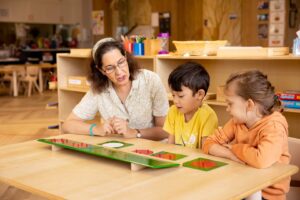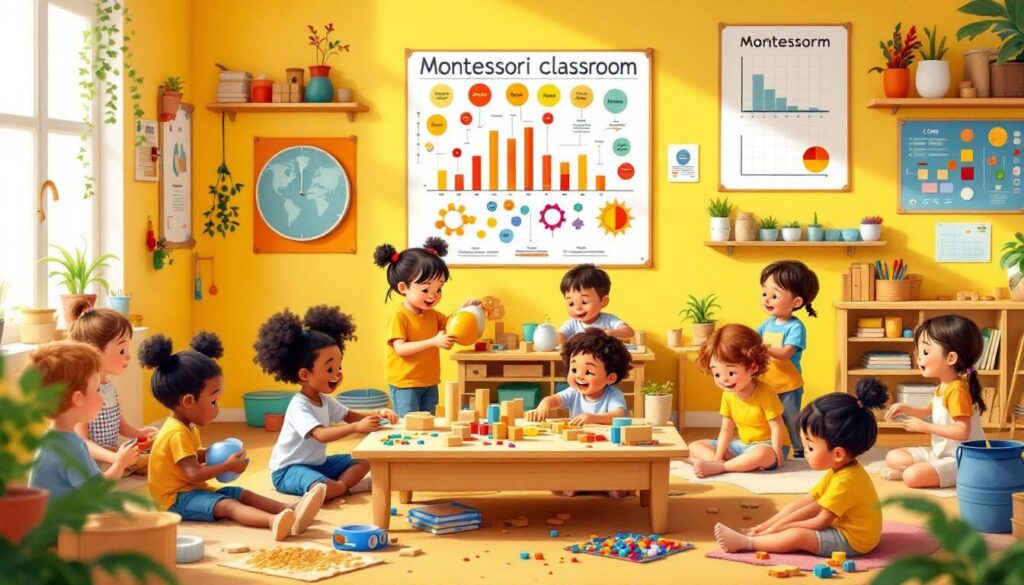Montessori schooling is a child-centered schooling method developed by Dr. Maria Montessori in the early 20th century. The schooling philosophy emphasizes independent learning, practical life, and specially designed environments to foster independence, creativity, and critical thinking. Montessori schools are unique from traditional education systems because they are designed to assist children’s natural inclination to discover and learn independently at their rate.
The Key Principles of Montessori Education
Montessori school is founded upon some basic principles that differentiate it from normal school. They include:

Child-Centered Learning
In the Montessori class setup, the child is placed at the center of learning. The facilitators, instead of being the instructors, create space for the children to attend to their learning process. In this approach, intrinsic motivation and love for learning are encouraged.
Hands-On Learning
The Montessori materials are sensorial and manipulative. The learner learns through working with real objects, not through memorization, and therefore learning is meaningful and fascinating.
Prepared Environment
The Montessori classroom is a beautiful, orderly, and welcoming place for independent work. There is a place for everything, and children learn to respect their environment.
Mixed-Age Classrooms Mixed-age classrooms are one of the most conspicuous Montessori education features. Children from various age groups (for example, 3-6 years, 6-9 years) learn together in a single class. It promotes learning among peers, cooperation, and leadership abilities.
Freedom Within Limits
Although children have the freedom to choose what they wish to do, there are certainly limits and expectations. In this balance, they discover how to develop self-discipline, responsibility, and time management. Focus on the Whole Child Montessori education is not strictly academic but promotes the physical, emotional, social, and intellectual development of the child. Practical life, grace and courtesy, and problem-solving are accorded equal significance.
Benefits of Montessori Education
Montessori education has been applauded for its manifold advantages, including:
Promotes Independence: Kids become independent and responsible when they have decided and resolved their issues on their own.
Enhances Critical Thinking: Emphasis on discovery and exploration enhances problem-solving and analytical skills.
Develops Social Skills: Mixed-age classrooms encourage cooperation, mentoring, and respect for others. Accommodates Diverse
Learning Styles: Montessori learning acknowledges that each child learns differently and offers a dynamic method of teaching to address diverse learning requirements.

Encourages a Lifelong Love of Learning: As a result of the emphasis on curiosity and independence, children acquire a love of learning that is strongly ingrained.
Montessori vs. Traditional Education
Montessori education is different from traditional education in various aspects. Traditional classrooms make use of the teacher-led approach with generic lesson plans and a fixed curriculum. Montessori classrooms offer greater freedom to the students, independent study, and hands-on exercises. Montessori children also don’t adhere to traditional methods of grading but focus on personal evaluation and development. 
Conclusion
Montessori education is child-centered education that revels in the uniqueness of the child. Through its focus on independence, creativity, and critical thinking, Montessori education sets children up for success not only in school but also in their personal and professional lives for the remainder of their lifetime. While it won’t be perfect for every kid, Montessori schooling remains at the top of the list for parents who seek a balanced and child-directed learning process



